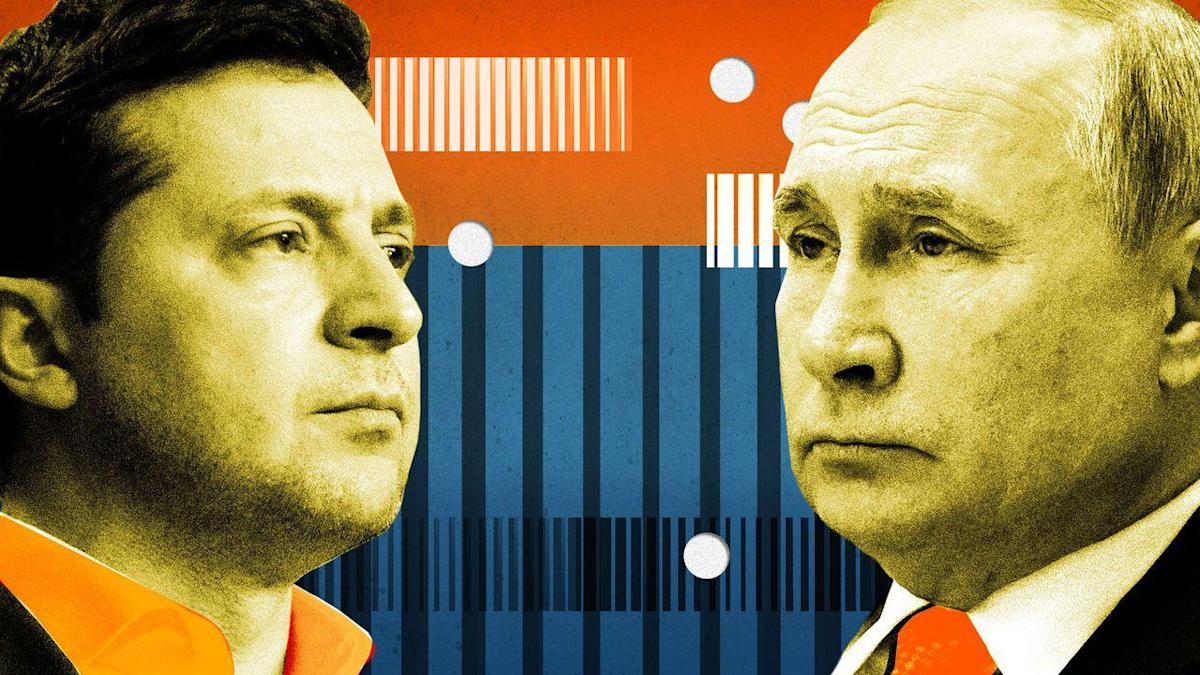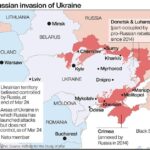
The only clear path to peace in Ukraine is a deal between Vladimir Putin and Volodymyr Zelensky, but the red lines drawn by the Russian and Ukrainian leaders do not intersect.
The big picture: The scope of the fighting is narrowing, and both sides have signaled some flexibility on Ukraine’s post-war status, yet experts say this war is likely to keep raging, and may become even bloodier.
Stay on top of the latest market trends and economic insights with Axios Markets. Subscribe for free
-
“The ugliest pages of this war are likely in front of us,” predicts Alexander Gabuev of Carnegie Moscow.
-
Putin could sell fairly minor concessions from the Ukrainians as a major victory given his control of the domestic media, Gabuev says, but he doesn’t think that’s likely. “Having started such a terrible and reckless war, I think he will not settle for lesser prizes.”
-
Instead, Gabuev expects Putin to continue to “ground cities district by district” and bet that his leverage will grow over time because he has more troops and arms at his disposal.
State of play: Russian officials now claim their objective is to “liberate” all of the eastern Donbas region, rather than take major cities like Kyiv.
-
But they’re still demanding that Zelensky recognize the Russian-backed Donbas “republics” as independent and accept Russian sovereignty in Crimea — concessions Zelensky has said he cannot make.
-
The front lines across Ukraine are now largely frozen except in Donbas, where Russian forces are bombarding Mariupol and appear to be making gradual territorial gains. Elsewhere, attempted advances have been repelled, including outside Kyiv.
-
Another round of peace talks is expected this week, possibly in Turkey, though Putin has rebuffed Zelensky’s calls for a leader-level summit.
Data: Institute for the Study of War; Map: Jared Whalen/Axios
Zelensky has suggested that Ukraine is prepared to abandon its NATO aspirations. and the Kremlin has apparently dropped its push for regime change.
-
The most glaring gap is over Russia’s territorial demands, which Zelensky and his top aides have said are unacceptable and, under Ukraine’s constitution, could not be accepted without a national referendum.
“We are not going to give anything that is ours,” Zelensky’s chief of staff, Andriy Yermak, told Axios’ Barak Ravid.
-
Zelensky did say Sunday that if Russian troops pull back to their positions in the Donbas from before the invasion — when the territory was de facto divided — he would be prepared to negotiate a compromise.
-
But Maryan Zablotsky, a member of parliament from Zelensky’s party, told Axios that Ukrainians are focused on securing a military victory — which he believes is only a month or two away — rather than ceding to any of Putin’s “totally irrational” demands.
Between the lines: While Zelensky is urgently appealing for peace, Ukraine’s success on the battlefield and in the global information war could actually make it harder for him to compromise, says Gabuev.
The other side: Putin is not personally involved in the public or private diplomacy and has sent mainly lower-level officials to negotiate, suggesting “he’s not serious right now about diplomacy,” says John Herbst, a former U.S. ambassador to Ukraine.
-
Sergey Radchenko of the Johns Hopkins School of Advanced International Studies says Putin may be starting to look for a way out, but that he’ll likely wait for a military breakthrough or, barring that, until the attention of the West begins to drift.
The bottom line: Russia’s apparent shift to focus its firepower on the Donbas may narrow the scope of this war. But that doesn’t mean it will make a peace deal more likely.
-
Go deeper: Subscribe to How It Happened from Axios to hear Dave Lawler host the latest episode of Putin’s Invasion, Part III: How It Could End.
More from Axios: Sign up to get the latest market trends with Axios Markets. Subscribe for free




